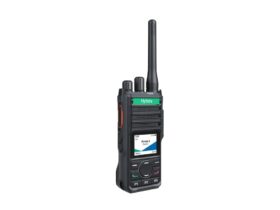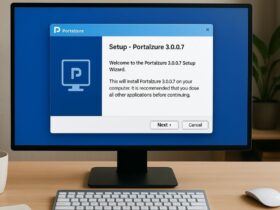In today’s digital age, link shorteners and redirection tools have become common parts of the online experience. Whether you’re browsing social media, reading a blog, or watching a video, you’ve likely come across short links that redirect you to another website. One such mysterious link making the rounds is adsy.pw/r. But what exactly is adsy.pw/r, and why is it so widely used? Is it safe? Should you click it?
In this complete guide, we’ll uncover everything you need to know about adsy.pw/r, including its purpose, how it works, possible risks, and tips to stay safe online.
Understanding adsy.pw/r: What Is It?
At first glance, adsy.pw/r appears to be a shortened URL — the kind typically used to hide long web addresses or track link clicks. However, unlike more familiar services like bit.ly or tinyurl, adsy.pw is less transparent and not as widely recognized, raising questions about its legitimacy and use.
The domain adsy.pw is a shortened link generator, most likely associated with affiliate marketing, ad redirection, or link tracking. The “/r” part of the URL usually denotes a redirect path. When users click on an adsy.pw/r link, they are typically redirected through a tracking system that might log their activity or show them advertisements before leading them to the intended destination.
Who Uses adsy.pw/r Links?
1. Affiliate Marketers
Marketers use such links to track user behavior or earn revenue from clicks. The redirection process may include affiliate IDs or ad impressions to generate passive income.
2. Influencers and Content Creators
YouTubers, bloggers, or influencers might use adsy.pw/r links to track how many people click on their recommended products or services.
3. Spam Networks or Clickbait Sites
Unfortunately, some malicious actors exploit services like adsy.pw to mask dangerous websites, phishing pages, or malware downloads. These are often disguised as giveaways, free downloads, or sensational content.
Is adsy.pw/r Safe?
Pros:
- Anonymity: Users who want to conceal a long or complicated URL may prefer short links.
- Analytics: The platform might offer click data and geographic info to marketers.
- Ad Revenue: Some services use intermediate ads to generate revenue.
Cons:
- Redirection Risks: Clicking on unknown shortened URLs can lead to malicious websites.
- Lack of Transparency: adsy.pw/r doesn’t clearly identify where the link will take you, making it difficult to trust.
- Potential Phishing: Some links might redirect users to scam pages that steal personal information.
Bottom line: Not all adsy.pw/r links are harmful — but caution is necessary.
How adsy.pw/r Works Behind the Scenes
When you click on a adsy.pw/r link, here’s what typically happens:
- Initial Redirect: You’re sent to adsy.pw servers.
- Tracking Phase: Your device, location, and browser info might be logged.
- Ad Display (optional): You may briefly see an advertisement.
- Final Redirect: You’re taken to the actual target page (e.g., a product page or article).
This process usually takes only a few seconds, but it can expose you to potentially unsafe content if the redirect is not properly managed.
Why Is adsy.pw/r So Popular?
- Easy Monetization: Many URL shorteners are linked with ad networks. Every user redirected equals potential ad revenue.
- User Curiosity: Since the destination is hidden, users often click out of curiosity.
- Social Media Friendly: The short format is perfect for Twitter, TikTok, and other platforms with character limits.
- Tracking Capability: It’s useful for monitoring marketing performance, especially for affiliate campaigns.
How to Check If an adsy.pw/r Link Is Safe
Before clicking, here are a few smart strategies to protect yourself:
1. Use a URL Unshortening Tool
Websites like CheckShortURL or Unshorten. It allows you to preview the actual destination behind a shortened link.
2. Use Browser Security Tools
Some antivirus extensions and browser security plugins will block suspicious links automatically.
3. Hover Before You Click
If you’re on desktop, hover your cursor over the link to see a preview of the destination in the status bar (if visible).
4. Avoid Clicking Links from Unknown Sources
If the link is in a spammy email, anonymous comment, or random direct message, it’s best not to engage.
What to Do If You’ve Already Clicked
If you’ve clicked an adsy.pw/r link and are unsure of what happened:
- Scan Your Device: Use antivirus software to ensure no malware was installed.
- Check Browser History: Identify the final URL you were taken to and assess its legitimacy.
- Clear Cookies: Some redirect systems track users via cookies; clear them for extra safety.
- Update Passwords: If you were prompted to log in or provide data, change passwords immediately.
Alternative Trusted URL Shorteners
If you’re looking to shorten and share URLs safely, consider these reputable services:
- Bitly (bit.ly) – Trusted by businesses, offers analytics and branded links.
- TinyURL – Simple and effective with no login required.
- Rebrandly – Great for creating custom branded URLs.
- Ow.ly (by Hootsuite) – Ideal for social media tracking and campaigns.
FAQs
1. What exactly is adsy.pw/r used for?
Answer: adsy.pw/r is a shortened URL typically used for redirecting users to other websites, often for purposes like affiliate marketing, ad tracking, or content promotion. It helps hide long URLs and monitor link performance.
2. Is adsy.pw/r a safe link to click?
Answer: Not always. While some adsy.pw/r links may be harmless, others can lead to suspicious or malicious websites. It’s best to preview or unshorten the link before clicking, especially if it comes from an unknown source.
3. Why do I see adsy.pw/r links on social media or YouTube?
Answer: Many content creators and marketers use adsy.pw/r links to track click-throughs or earn money through redirection ads. It’s a way to share affiliate or promotional content in a compact format.
4. Can I find out where an adsy.pw/r link leads before clicking it?
Answer: Yes, you can use tools like CheckShortURL.com or browser extensions that reveal the final destination of shortened links before you visit them.
5. What should I do if I clicked on a suspicious adsy.pw/r link?
Answer: Immediately scan your device with antivirus software, clear your browser cache and cookies, and avoid entering any personal data. If you entered login information, change your passwords right away.
Final Thoughts
While adsy.pw/r might appear to be just another URL shortener, its usage pattern, anonymity, and lack of public-facing information raise legitimate concerns. Some links might be harmless and used for simple redirection, while others may pose cybersecurity risks.As a general rule, treat unknown shortened URLs with caution, especially when shared via random messages or unverified sources. Stick with known link shorteners when sharing your own URLs and make use of preview tools if you’re unsure about where a link leads.
Also read: what is cantalido4004
















Got a Questions?
Find us on Socials or Contact us and we’ll get back to you as soon as possible.